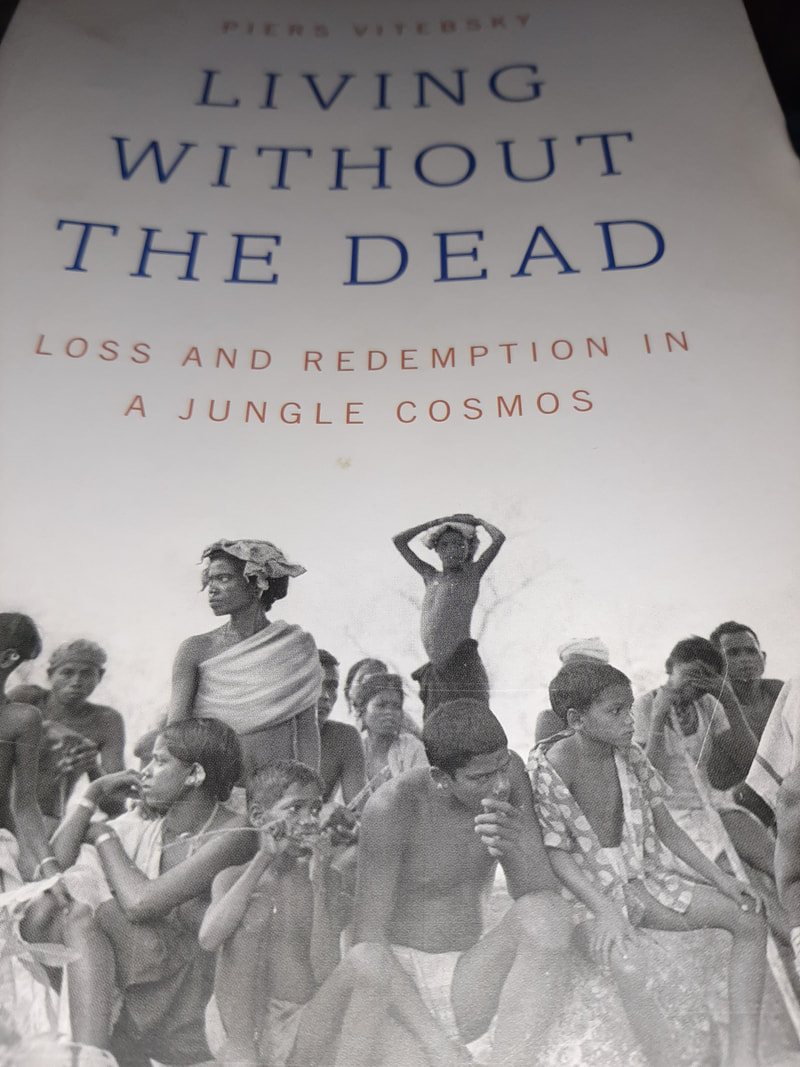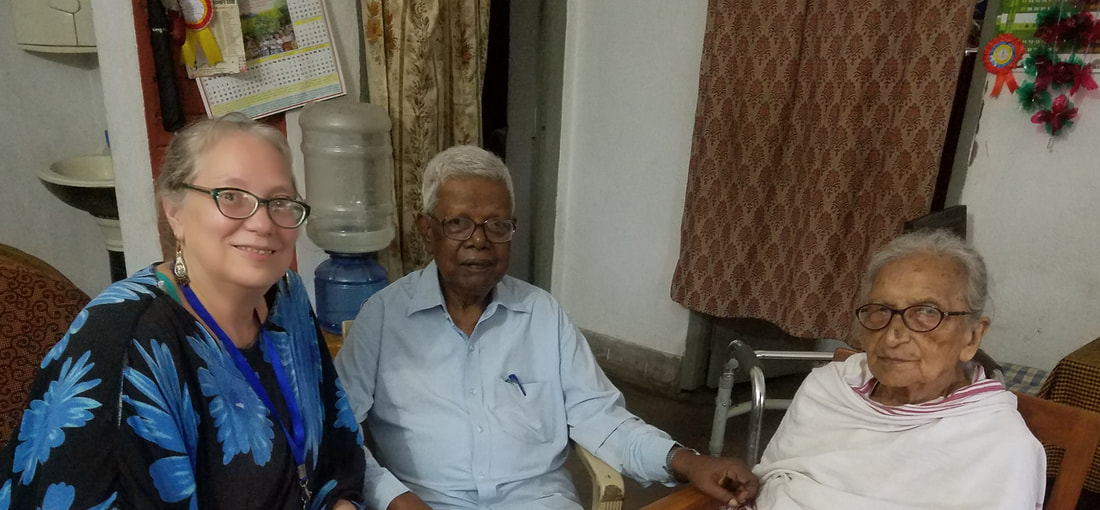|
Upon completing an incredible 50 year study of and relationship with the Sora tribe of southern Odisha by Piers Vitebsky in “Living Without the Dead: Loss and Redemption in a Jungle Cosmos”(Chicago University Press: 2017), I wish to share a portion of his conclusion that describes the importance of preserving Adivasi culture. How literature, language, social well being and relations and even ecology are all tied together with our past, present and future. "By the 1990s there was a growing awareness of the worldwide threat of the extinction of plants, animals, and ecosystems. The United Nations Convention on Biological Diversity (UN:1992) was closely followed by the International Union for Conservation of Nature’s Red List of Threatened Species (www.iucnredlist.org), which established a grading of endangerment (Moseley: 2012.2) This approach was soon extended to the idea of endangered languages (UNESCO 2010). Though languages are not simple entities, and their boundaries are debatable, linguists reckon that there are only 6,000 languages surviving in the world today, and that half of these are endangered (Evans:2019; Moseley:2012). The greatest threat to a minority language world-wide is schooling in a dominant language. Whatever the benefits of residential schools, they are also a notorious medium of alienation, separating children not only from their parents bu also from their cultural and linguistic milieu. However, many people speak a language now, if i is not spoken by the children and carried forward into their adult life it can become extinct in a generation. Sora may be reaching this point. At stake are not only language themselves but “entire worldviews, religious beliefs, creation myths, observations about life, technologies for how to domesticate animals and cultivate plants, histories of migration and settlement….” (Harrison:2007.159). Daniel Nettle and Suzanne Romaine (2000) argue that “the extinction of languages is part of the larger picture of near-total collapse of the worldwide ecosystem… and that the causes of language death, like that of ecological destruction, lie at the intersection of ecology and politics.” My research points to a further endangerment, that of untold thousands of religions that have formed most of human history (Rappaport:1999) for hundreds of thousands of years. Almost all of these religions (themselves worldviews in fluxx rather than static or bounded entities) have been unwritten and undocumented, and as they disappear they leave little race. The analogy with endangered species is not complete , and that with languages is closer, since religions can rapidly transform themselves, split, amalgamate, and make compromises in ways that species cannot. My experience with the Sora suggests that each religious form may be highly adapted to local social and historical situations, which are like ecological niches. Until the missionary hospital, this was a society total without medication. In earlier times there may have been more healing plants than I saw, but these were probably worn rather than ingested. The Sora lived and reproduced themselves in a situation of extreme survival, in which a high mortality rate reflected a process of extreme natural selection and extreme antibody production, experienced culturally as an extreme level of sonum (ancestral spirits) activity. By the 1970s, the government was following the missionaries in providing medicine locally, but there were many obstacles to its availability, not least embezzlement by medical personnel (and there was also one large scandal in the mission hospital), and I still had to watch helplessly as people of all ages dropped dead around me. Yet the Sora did not have a concept of a lack of medical facilities; rather, their attention was focused on a different understanding of survival and flourishing, based on familial relationships. Today the person has become more individual and less relational, and this has combined with the greater availability of medicine to narrow the chains of reasoning about misfortune." (Vetebsky:2017.330-332) I respect Vitebsky’s integrity as an anthropologist to grasp the nature of the radical transformation of the Sora from what he calls animism to Baptist Christianity (and other religious expressions) during those 5 decades of experience in “Soraland”. Since I am looking at the forty odd years that my ancestors lived with and related to the Oroan in Lohardaga district, this was a contemporary example of the nature of cultural transformation (sanskriti parivartan) and to explore what was lost and what has, sometimes ironically, survived. I respect that he also was forced to rethink what the role of the missionary was and even admitted: "An anthropologist may not be so different from a missionary after all, since we both draw out personal narratives that go beyond those that people are used to articulating, show them new perspectives, and change their lives." (p 327)
I would add: in a changing world that would impact them eventually but gives them some agency to transform on their own terms. Yes, for the Christian converts had an initial impetus to throw away the old and embrace something new, but always there is memory or nostalgia that calls back to an older narrative that does not escape, something about food, social interactions, family and kinship relationship, moral sense, and I think most of all, their folk tales and music (the literature of the illiterate), or their ability to tell their stories and hear their own stories in their own voice. Their stories and culture are not simply beneficial for the identity of the people themselves, but there is a growing global awareness that in the mad rush towards development relations to each other, to nature and both the physical and spiritual realities has become distorted and corrupted. Those surviving traditions may become a helpline to regain new ways to develop and progress that is actually sustainable, with agency in the hands of the people themselves to write their own stories, and to form a collective memory based on forgotten relationships and knowledge.
0 Comments
|
Click here to learn more!
AuthorMary Girard with Bishop Nirmal Minz and his wife, Parakleeta, two remarkable leaders of the Adivasi Christians of Jharkhand. They are writer's themselves and have encouraged me much in my pursuit as a writer and have inspired many others. I am an author of my first book that is seeking publication. Among the Original Dwellers: Remembering Ferdinand Hahn, tells of the life story of my great great grandfather who was a missionary from 1868-1910 in Chota Nagpur. In writing his story I discovered the story of the Adivasi of the region who were also impacted by his life. I am now committed to inspiring others to learn and write about their Christian Adivasi heritage. Archives
April 2022
Categories |


 RSS Feed
RSS Feed